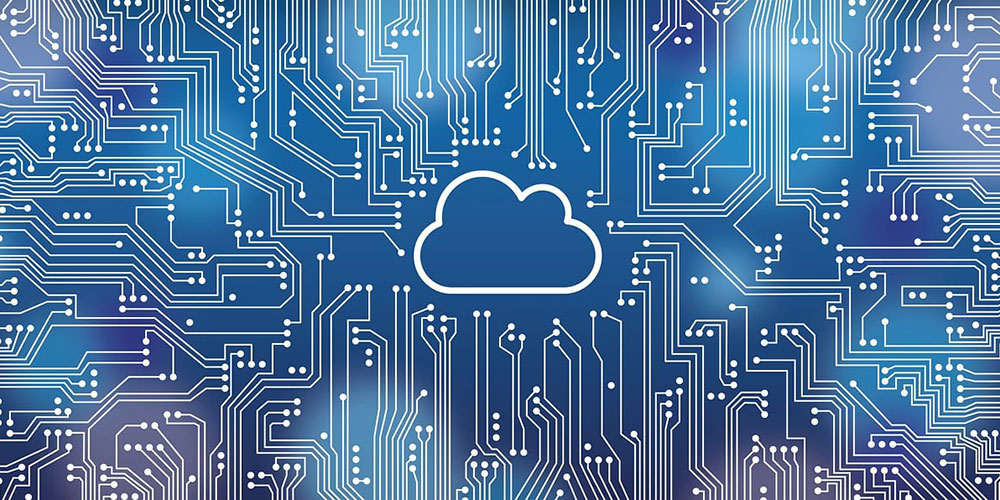What Is The Cloud?
Cloud storage and services are becoming increasingly popular, and most of us are currently using these methods– at least sometimes– whether we are fully aware of it or not. Businesses everywhere are making the switch to store their data in the cloud.
If you’re not quite sure what this means, the cloud refers to any type of software or service that isn’t located on your personal computer or device, but instead runs on the internet. The data you save on the cloud is stored on the servers of third parties (companies such as Amazon, Google, and Microsoft, etc). Google Docs, Yahoo Mail, and Dropbox are all examples of popular services that are cloud-based, though those are only a few of the growing companies implementing these services.
So, as with most new-tech concepts, and especially those that involve third parties, the question arises: is my data safe? It is certainly useful and freeing not to have bulky files and data sitting on your desktop or external hard drive, and comforting to know that you’ll still have access to those files even in the event of a computer crash or other breakage, yet somehow the concept of a floating cloud of data managed by someone else feels a bit less private.
Reasons Why The Cloud Is A Safe Option
The truth is, data that you save with cloud service providers may likely be safer than the information you’ve stored on your personal computer’s hard drive. The reason for this is that security measures undertaken by larger companies providing cloud services are likely to be more robust and powerful than the ones you have protecting your home computer and devices. Reputable cloud service providers simply have stronger cybersecurity measures.
Encrypted Files
Files stored on the cloud are encrypted, meaning that the files are protected, and only someone with the right encryption key/access (you) can decrypt them. This way of scrambling your data makes the files much harder for hackers to get into, as not even your cloud provider can decrypt your files or access their contents. This is a common procedure in the cloud storage industry, and it is often referred to as end-to-end or zero-knowledge encryption.
Consistent Updates
Cloud service providers are also constantly checking for updates and maintenance, making sure that no update is passed over or missed. The reason for this is simple; many times updates contain fixes or solutions to bugs or weak links in a program, and by staying the most up-to-date on all of your updates you make sure not to miss anything important. Since these updates can be missed easily on a personal device, most cloud services are a bit more regimented when it comes to routine updates.
Protection Tools
Professional cloud service providers often have multiple tools in their belt to help keep your data safe, including firewalls, AI tools and auto-patching. Firewalls are used to filter out any suspicious traffic coming into a network, keeping your data behind a “wall.” This makes it more difficult for hackers to sneak malware or viruses through. AI (artificial intelligence) programs and auto-patching rely on built-in algorithms to seek out and identify any possible weaknesses or vulnerabilities in security measures, constantly overseeing your data and making sure that it’s safe. Patches are used to eliminate entry points and to ensure proper security.
Redundancy
Most of the biggest cloud providers also practice a thing called redundancy, a communications pathway that has additional links to connect all nodes in case one link goes down. So, since the data you store in the cloud actually lives on physical servers, redundancy means that each file is actually copied multiple times and then exists on multiple servers, in independent data centers around the US or even around the world.
This basically means that they keep your data extra backed-up, in the case of a power outage, hardware failure, natural disaster, etc. This backed-up data will remain available to you no matter what happens, keeping it consistently safe and accessible. This system is so fail-safe that Amazon Web Services estimates the chance of losing your data from the cloud is just one in 100 billion.
Constant Monitoring
Most major cloud storage providers have dedicated operations centers staffed with experts in cybersecurity working around the clock. These teams are specifically trained to monitor activity and look for any potential threats. They also have the tools necessary to block out any threats or intruders.
Your cloud provider will also often hire outside security companies to test their servers and software regularly, making sure they are safe from hackers, cybercriminals and the latest malware and viruses. This outside testing boosts the odds that your cloud provider will have the defenses needed to keep your files away from hackers.
Most data centers also ensure the security of the physical servers which hold your data, and keep them patrolled around the clock by professional security teams. These important servers are often kept in locked cages as an extra precaution against theft.
Things You Can Do To Increase Cloud Security
Disconnect Your Devices
When you are not using it, always log out of your cloud account, and make sure to turn on the automatic time-out feature if your cloud provider offers it. If your computer, smartphone, and other devices stay logged in to your cloud storage account when you’re not using them, that provides a potential entry point for intruders. Also, by leaving your devices logged in, you allow anyone who gets hold of your device to break into your cloud storage.
Turn On Two-Factor Authentication
Two-factor authentication provides an additional step for you to access your data, therefore making it twice as safe and protected. Often this means that you must provide a password and one-time verification code in order to access your files. These codes are sent to your email or device, so even if a hacker guesses your password they are still locked out.
Check Shared Files
It is important to periodically audit which files and folders you’ve shared from your cloud account, and revoke access for anyone who no longer needs it. If your cloud provider offers links with passwords and expiration dates, put these features to use instead of sharing unrestricted access to your files. This can protect your information in the long-run.
How ComRes Can Help
It can be scary to embark on your new cloud journey alone. When it comes to ensuring your data’s security while implementing and maintaining your cloud services, ComRes is here for you. Call us today at 954-462-9600 or fill out our online form to receive more information on how we can help your business technology thrive, maximize your potential, and protect your files to the fullest!






